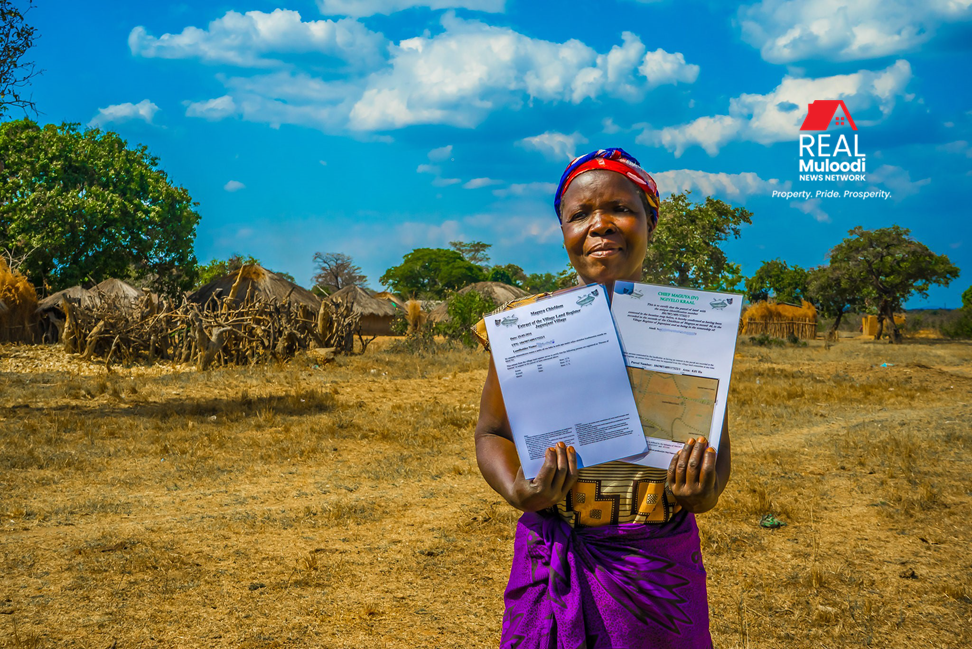UGANDA, Kampala | Real Muloodi News | Land tenure systems in Uganda are divided into four main categories: Mailo, freehold, leasehold, and customary. However, according to Lands Minister Judith Nabakooba, customary and Mailo tenures pose the greatest threat to women’s land rights and registration.
In a recent article authored by the Lands Minister, she explains that Customary tenure accounts for nearly 80% of all land in Uganda and is governed by the customs and traditions of a particular society where a specific piece of land exists.
Unfortunately, it is largely unregistered, which Nabakooba says has led to several issues, including insecurity of tenure for landowners, a hindrance to the advancement of land markets, and difficulty in determining ownership.
In contrast, documented and/or registered land rights serve as conclusive legal evidence of property ownership and provide a sense of security, identity, and a means to mitigate social and economic risks.
Legal Provisions for Land Registration
Nabakooba says that to strengthen tenure security, simplify land transactions, enable the use of land as collateral for credit, and promote better land administration, legal land rights must be adequately defined and documented.
The Land Act 1998 provides for the registration of customary land, while the Registration of Titles Act provides for the registration of land under freehold, leasehold, and Mailo tenure systems.
Unfortunately, only 20% of land in Uganda is registered under these tenure systems, despite legal provisions.
Customary Land Rights Registration
Nabakooba explains Customary land rights registration has been successful in documenting and securing land rights for poor people, especially women, who are often victims of undocumented and unregistered land rights and, as a result, suffer from land rights violations and insecurity.
Additionally, there is a gender gap regarding ownership, access, and decision-making power over land, especially in rural areas.
Uganda’s land laws do not expressly discriminate between men and women regarding land ownership and property rights. However, women in Uganda are generally unable to register their land due to poverty and entrenched gender inequality, which affects their productivity and increases food insecurity as they are the primary users of the land providing the bulk of “non-contractible” agricultural labor.
NRM Government’s Efforts to Address Gender Inequality in Land Registration
To address issues related to gender inequality, Nabakooba outlines several interventions implemented by the NRM Government through the Ministry of Lands, Housing, and Urban Development.
- The promotion of gender-sensitive land tools, which are pro-poor, has enabled grassroots women, youth, and vulnerable people to acquire Certificates of Customary Ownership (CCOs) as provided for in the 1998 Land Act and 2004 Land Regulations.
- The CCO issuance process has been carried out in several areas, including Kasese, Pader, Butaleja, Mbale, Kisoro, Kabale, Nwoya, Adjumani, Soroti, Katakwi, Namutumba, Terego, Dokolo, Amolatar, Apac, Agago, and Maracha.
- Since 2015, over 72,000 CCOs have been issued, and land has been registered.
However, many women and communities remain unaware of the legal regime of women’s land rights, which continues to deny them their land rights.
Therefore, Nabakooba emphasises sensitisation and awareness-raising programs must be intensified.
Sensitisation and Awareness-raising Programs
Despite the progress made in registering customary land rights for women in Uganda, Nabakooba says there is still a significant gap in awareness and understanding of these legal rights.
Many women and communities are unaware of the benefits of land registration and the power that it grants them in protecting their property rights, as well as being used as a tool for economic empowerment and sustained livelihood. This is why the intensification of sensitisation and awareness-raising programs is crucial.
Through these programs, women and marginalised groups can learn about the importance of land registration and their legal rights, as well as how to acquire certificates of customary ownership.
The government, civil society organisations, and development partners have an important role to play in raising awareness about these issues and empowering women to secure their land rights, says Nabakooba.
Benefits of Land Registration for Women
The benefits of land registration for women are numerous. Firstly, it clarifies ownership and minimises conflicts and disputes that may arise out of not having a land title.
Women who have secure land tenure are more likely to invest in their land and increase their agricultural productivity, which can lead to increased food security and improved livelihoods for themselves and their families.
Additionally, land registration can help reduce incidences of land disputes, stimulate land development, and minimise the costs of delays during land transfers as the recording system makes transfers easier, less expensive, and more secure.
Furthermore, certificates of customary ownership can be used as collateral for loans, allowing women to access credit and invest in their land.
Improved land use and management is another benefit of land registration.
Information on land ownership and rights for physical planning can facilitate the development of other planning tools such as information on land use, land values, and population. This can lead to better land use practices, more sustainable land management, and improved environmental outcomes.
However, the government will continue to raise awareness about the importance of land registration and ensure that all women and communities have access to these important tools.
Nabakooba emphasises that the NRM Government shall continue investing in the registration of women’s land rights in order to economically empower them, leading to food security and improved livelihoods.
READ MORE LIKE THIS:
Ministry of Land Officials Push for Customary Registry in Revised Land Law
Government Works Towards Registration of Customary Land in Greater North



